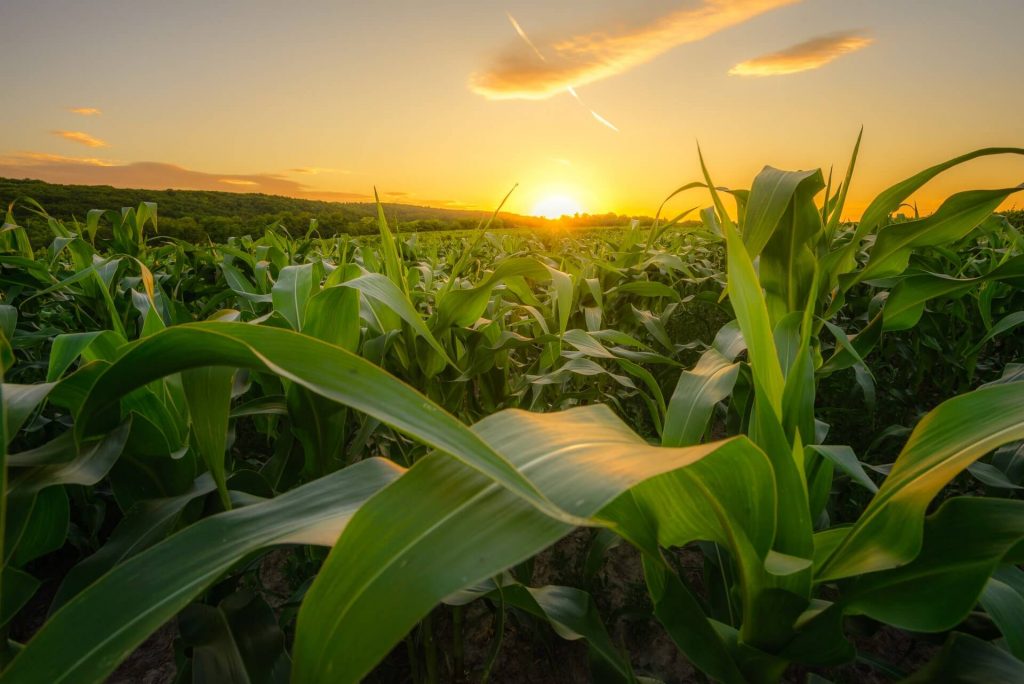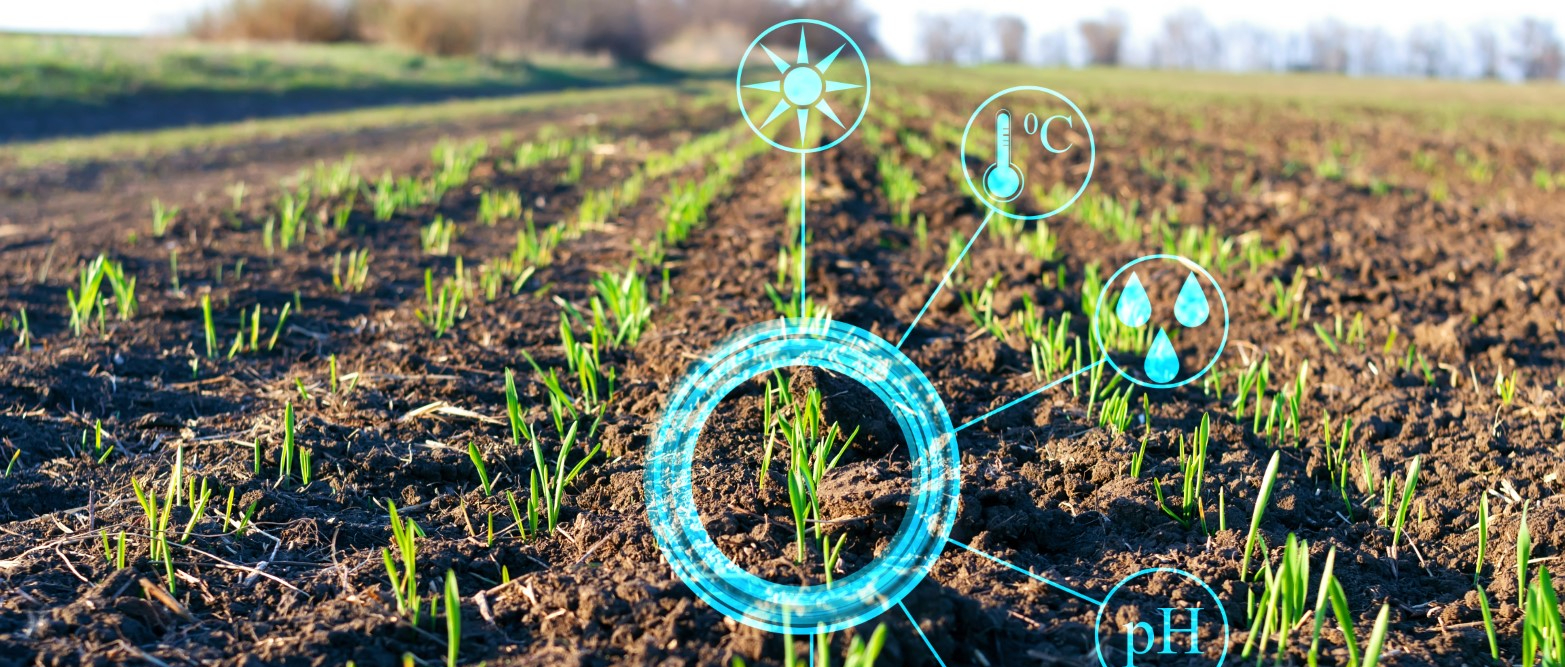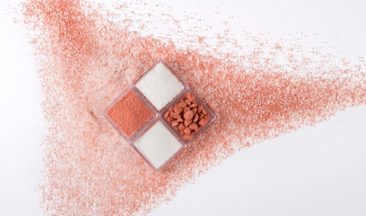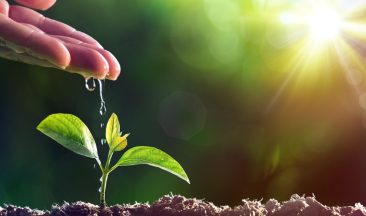Dr. Sagi Katz, VP of Agronomy at Agmatix, an ICL-owned digital agro informatics startup, offers impactful insights into ICLeaf – a new technology that is truly turning over a new leaf in plant nutrition innovation. He has been instrumental in the development of the ICLeaf approach.
ICLeaf was developed at the Center for Fertilization and Plant Nutrition (CFPN), which was founded through a partnership between ICL and the Volcani Institute (Agricultural Research Organization ARO).
What is ICLeaf?
ICLeaf closes the cycle of technology supporting farmers’ collaborative crop nutrition decisions. These decisions, made in combination with trusted advisor agronomists that create prescriptions to support precision nutrition, have downstream impacts on crop productivity and environmental sustainability. Having the maximum data possible to support these collaborative decisions results in the best outcomes for profitability, yield, crop quality, and the environment.
ICLeaf adds a new, influential dataset to the precision nutrition conversation. ICLeaf is an efficient and cost-effective X-ray-based leaf nutrient analysis to identify when farmers exceed plant nutrition (surplus fertilization), or to identify plant nutrient deficiencies (not enough elements to grow proper crops) to specific elements. This technology empowers agronomists to optimize the farmers’ nutrition plan using precision – moving the nutrition plan beyond fertilizer 101. This plant leaf analysis can be done at different maturities throughout the season and as the plant nutrient requirements change throughout the lifecycle.
Agronomists and farmers have long been collecting site-specific data to understand nutrient availability and needs. Soil analysis has been a common method of understanding site-specific needs. But it represents a very small area of soil, which may not be representative of the soil near the plant’s roots, where the nutrients are needed.
Leaf tissue analysis has been an option for supplemental data, but has been a lengthy process – sometimes taking up to three weeks for results. In the waiting time for the plant leaf analysis, plant growth occurs and nutritional needs can change drastically. Leaf nutrient analysis used to be an expensive and slow endeavor.
With ICLeaf, a new approach to testing makes leaf tissue analysis fast and cost-effective, adding a new tool to the agronomist’s toolset for data-driven decisions. Leaves, petioles, fruits, and more can now be tested to learn more about the growing plant’s nutrition needs and adjust plans accordingly.
Cotton, tomatoes, grapes, pomegranate, and bananas are all compatible with ICLeaf today, with sugar cane coming soon. Ultimately, the sky’s the limit for the crops that will someday benefit from precise nutrition through this fast, effective leaf nutrient analysis.
A single agronomist, armed with ICLeaf, can now be a single point of contact with a full support package for growers. Managing samples, providing recommendations, and supporting the implementation of those recommendations can all be done by one agronomist, whose relationship with their growers will be strengthened.
How does ICLeaf work?
ICLeaf was created by taking existing, approachable tools – infrared x-ray technology – that can measure a spectrum and then calibrate the spectrum to address the analysis. This calibration allows plant leaf analysis to have consistent, accurate results regardless of lab. Machine learning was used to learn the nutrient elements and the crops at a very high level of accuracy.
The deviation between labs was overcome through innovative algorithms that transform chemical analysis into a spectrum of infrared and visual light that can be calibrated. This covers the 12 essential elements and heavy metals, which can influence food safety and sustainability. This unique approach reduces variability between labs, including those that are in different countries.
ICLeaf can be integrated into other systems, too. The hope is to integrate with other systems to improve support at the farm level. For example, through remote sensing, ICLeaf and data-driven decision support systems would grow beyond nutrition and into plant protection, irrigation, and other critical management aspects. Additional innovation is expected through the data collected from the field.
ICLeaf and Digital Crop Advisor
Agmatix’s Digital Crop Advisor is a decision support tool to support the day-to-day work of growers’ trusted advisors. The platform allows a few data points specific to the nature of the field and crop to determine the crop requirements and provides an optimized crop nutrition plan for agronomists to manage with their growers.
ICLeaf serves as the first stage of data collection to feed the Digital Crop Advisor with key information by identifying plant nutrient deficiencies. Stage two is fulfilling the nutrient requirements of the plant with the right products at the right rates and the right complexity.
This can mean fertigation or a foliar spread or broadcast application, or even a controlled-release fertilizer. Digital Crop Advisor helps translate the ICLeaf results into the right actions to address crop nutrition needs in a sustainable way.
With lab technology ICLeaf and Digital Crop Advisor together, it’s possible to have precise inputs at the beginning of the season AND additional data, like soil, water, and leaf analysis, added throughout the season to adapt crop nutrition plans. This is key for improving soil health and farming in an environmentally sustainable way.
What are the key features of ICLeaf?
ICLeaf leverages protocols or templates that work as pre-made professional processes to determine the elements and products needed. These are dynamically changed based on site-specific attributes like altitude and soil pH.
Using plant leaf analysis at 4-7 points during the growing season, a prescription can be created based on the analysis results and other key data points. These analyses can be completed at critical points in the growing season when the farmer can adapt management practices.
This allows seasonal support for spoon-feeding precise nutrients to the crop instead of a single application of nutrients intended for yearly support. This approach is environmentally friendly and delivers the right nutrients to the crop at the right time to support it in reaching its full yield potential.
1700 farmers are currently experiencing the benefits of ICLeaf. Thousands of prescriptions have been created based on the data from this plant leaf analysis, and it’s becoming possible to identify patterns of deficiency to proactively address plant nutrition. ICLeaf even supports fully remote crop nutrition. Right now, this is working well in India, where farmers are working with agronomy teams across different regions and different languages.
ICLeaf also supports the sustainable useability of products with different environmental sensitivity. For each prescription, it is possible to see a calculated carbon footprint. Based on this view, it is possible to change the product used in the prescription and see the corresponding change in carbon footprint for the field. To date, 140 kilograms of carbon have been saved per field through changes to product type leading to less runoff and other environmental impacts.

More on the subject:
The Positive Impact of AgTech in Advancing Food Security
Top 10 Agriculture Trends to Watch in 2024
Digital Solutions with ICL- Agmatix Creating Value from Agricultural Big
Data
ICL and Sustainability
Maintaining soil health, environmental health, crop yield, and profitability is a balance. ICL is committed to supporting growers and agronomists in achieving success in all of these areas. Sustainability in agriculture is a core commitment for ICL and we are driven to develop technologies for a better future. High environmental standards and the best technologies are the foundation of ICL’s sustainable approaches.
From controlled-release fertilizers to plant biostimulants, ICL’s innovations are shaping a better and more sustainable future. These technologies address long-term goals such as addressing food scarcity and maintaining natural resources to support a growing population.
Through technologies like ICLeaf that work to identify plant nutrient deficiencies to allow data-driven decision-making on an ongoing basis throughout the growing season, growers and agronomists can take impactful steps to protect the environment while producing for a growing world.
Elad Aharonson, president of Growing Solutions for ICL says “ICLeaf will help farmers gain greater visibility into their fields and maximize yields. This unique specialty service will assist farmers in planning for optimum nutrient management, by timely identifying deficiencies and enabling them to use the right products at the right time to improve yields and increase sales.”
Sustainability is embedded in our DNA. Our sustainable leadership has been recognized by CDP, the TSE’s index, and the ‘Maala’ leading Israeli ESG ranking. ICL has explicitly set sustainability goals including becoming carbon neutral by 2050, increasing renewable energy consumption, increasing circular economy, and promoting sustainable manufacturing. With these technologies and ICL’s commitment to building a better world, we believe that the best is yet to come.








